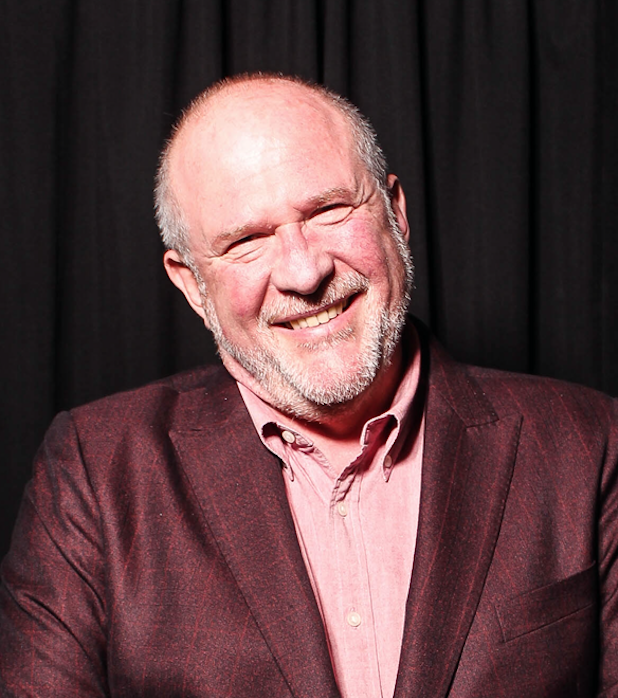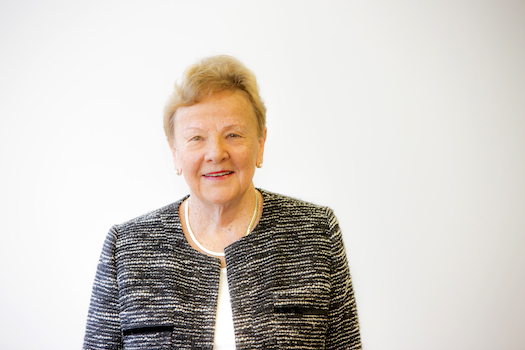Peter Saxon speaks with Janet Cameron
Next year, Grant Broadcasters will celbrate 75 years in radio now in the hands of the second and third generation of Camerons. It’s a remarkable achievement.
For this, Part Three of the Janet Cameron story, I canvassed a cross-section of people in the industry who have worked or have had dealings with her over the years.
They variously described her as: An Amazing and Humble Lady; A Person of her Word; A Quiet Achiever; A Commercial Radio Stalwart; Strong; Loyal; Reliable; To be Trusted.
And that’s just her enemies.
A long time senior manager employed by Grant Broadcasters told me, “The best thing about working for Janet was I always knew where I stood. And I never worried if I was in positive or negative territory. If I stood my ground she respected it. If I stuffed up she let me know. When that was the case it was, “learn from it and move on.”
Janet Cameron is proud to admit that Radio, particularly Regional Radio, is in her blood and in the blood of her offspring. It’s the reason why she’s turned down some pretty lucrative offers over the years.
“I have no inclination to sell,” she tells me. “We’ve had approaches to go public… to list on the stock exchange. When they ran some numbers and it would appear that there would be some ‘money left on the table’ that we could put away, I said to them: Tell me what I would do with that money? I said, I’m not even interested in talking to you unless you can tell me what to do with that money.”
‘I mean honestly, I practically glow when I hear stories like that. Knowing what our stations have done for various families over the years.’
That’s not to say she doesn’t make a heck of a lot of money as it is. 55 stations and the odd shopping arcade generates prodigious cash flow.
“You know, I get some really nice holidays,” she admits. But that’s not what floats her boat.
“Almost every time I go away I will meet somebody that lives in a market where we operate. And sometimes we will talk about that region, in a general sense, and they will say, ‘Gosh you know a lot about Bega. How come?’
“And I will say – well actually I’ve got a business in Bega. ‘What’s the business?’ they ask. And I say 2EC. And they go, ‘We love that station. We listen all the time!’ That for me is just such a big buzz.
“I just love that to bits. And sometimes it comes with a story. I shouldn’t say this. I don’t want to be negative about the abc. I think they do a great job. But sometimes it comes with, ‘We always listened to the ABC when we moved to Bega and we lost a dog or a cat or something and we rang 2EC and they put this ad on and we got the dog back the same day. Somebody had seen it on the road and they phoned in.
“I mean honestly, I practically glow when I hear stories like that so I think it’s that sort of stuff. Knowing what we’ve done for various families over the years that have had misadventures – health problems. It’s really rewarding when you hear these stories about how marvellous the station was when there were floods and the help it was to them in fires,” glows Janet Cameron.
The best of the young talent that joins Grant Broadcasters and similar regional networks are soon poached by stations in bigger markets making it a constant battle to provide quality content. “I think it does put pressure on us because you lose very good people. But hopefully, if the station has a good reputation it’s good people who apply to fill those positions because they too are interested in the springboard.
“I think it is getting harder, though, because years ago with sessions like Midnight to Dawn you had a great nursery for people to learn whereas now those sessions are all automated, so they have to come in at a higher level. Also, the city stations are taking the talent, not so much from radio but from comedy shows and that sort of stuff. I think that is a very big change. And if you’re talking about talk, which tends to have less movement in that area, so there’s not a lot of growth through there – not that those regionals have ever done the complete Talk thing but we still like to be able in a morning program to have it anchored by someone who can handle listener calls.”
I’m too old to understand about widgets, you’ll have to sort that out but leave me looking after radio.
At 78, Janet Cameron remains at or near the top of her game, “Brain’s reasonable,” she confides, “It’s not what it was. I used to have an incredible memory – too good a memory, as I’ve often been told.
“But I think I’m pretty much on top of everything other than what (son) Grant thinks we need to be doing in in terms of this new technology area. I said to him, ‘thats good – I’m too old to understand about widgets, you’ll have to sort that out but leave me looking after (traditional) radio. Commercial radio is still 90% of the business. That other 10% is an important sector because it’s the future but you can’t walk away from whats 90% of the business or it will all quickly become a lot less.”
Janet Cameron happily accepts that she has led a successful and fulfilling life – but not without her share of tragedy. “Two tragedies,” she recalls. “Losing my father and losing Dugald.”
Dugald was her husband, her soulmate, the love of her life. She lost her father and founder of Grant Broadcasters, aged just 58, to Leukaemia. He died not long after her wedding to Dugald. Dugald, himself, was no slouch when it came to business. He was the Managing Director of a giant pharmaceutical and agrochemical organisation called Ciba-Geigy, now known as Novartis.
Dugald retired from Ciba-Geigy at a relatively young age to help his wife, Janet in the broadcast business. “He was marvellous,” Mrs Cameron recalls. “But when he first started, he was used to having hot and cold running secretaries. “I said to him: You have to write the letter then you have to put the stamp on it and then you have to take it to the post office as there’s no one else to do it for you. He accepted all that. No problem. No,‘wheres all the help?’”
Dugald died soon after his 70th birthday. Once again, like her father, it was from cancer. But this time it was melanoma.
“But you know, when you had a great marriage and while I miss him still. Very much. I still consider myself to be so lucky. I didn’t realise how many women are not all that mad about being with their husbands and that was a real shock to me. He was just my best mate and I thought everybody had a marriage like this.”
Janet Cameron has built a broadcast and investment empire the envy of her contemporaries. She has done it through old fashioned values of both hard work and love of family. Life – work balance? It seems to come naturally to her – at least as proud of her achievements as a mother of three and grandmother of six as she is of her 50 wholly owned stations.
I’m not averse to having a crack at other things at all. Never have been.
She’s done all this through shrewd investment while keeping a firm grip on costs and without being a slave to strict corporate style planning principles. Neither is she fussed about leaving a “legacy.” When I ask her about the legacy she’d like to leave, she says, “Peter, I’m not very into navel gazing. I don’t think very much about things like that. I mean, I didn’t start out to own 55 radio stations or whatever it is, 50 plus a half share in five.
“I guess whatever comes, I like to examine. I’ve had a dabble in a lot of things. When we just had (the one station in) Dubbo, we moved out of the building it was in and built new premises for the radio station. We moved in and rented the other one.
“I couldn’t lease two of the shops. So in the end, I decided to put a printing shop in one. Instant prints like Kwik Kopy. What did I know about instant printing? Nothing. But through (my association with) the Regional Radio Bureau (RRB) I discovered that there was a need for this sort of thing.
“You don’t need to have this massive printing works to do printing. So, I went off and bought a thing from somebody or other, whoever made them. We set up a printing shop and we did all the printing and became a commercial printing shop.
I think my three kids are all very competent. They’ve all been in the business quite a long time now and I like what I see.
“And then, the kids were all leaving home and into flats and they were buying posters and framing them for art work and I thought, ‘theres nothing like that in Dubbo. I could put one of those in the shop in this little arcade that we own.’ So, you know I‘ve had a dabble with a few bits and pieces. I mean that wasn’t big stuff. When I sold Dubbo I sold the printing shop to the guy that was managing the print shop and the art thing I’m not averse to having a crack at other things at all. Never have been.”
Mrs Cameron describes her present position as ‘transition to retirement’ – handing over the reins to her children. Even with the strongest of succession plans in place, family businesses can be problematic. TV shows like Dynasty and movies such as The Godfather serve as cautionary tales.
Happily, the level of sibling rivalry among the Cameron clan is more Little House on the Prairie than it is Dallas.
Alison, Grant and Dugald will, no doubt, feel reassured to hear their mother say, “I think my three kids are all very competent. They’ve all been in the business quite a long time now and I like what I see. I hear very favourable comments about all three of them.
“But I did have problems with a succession plan, in a way… in trying to single any one of the three out as a chief executive. But they’ve come up with their own plan which I’m very happy with and I think the company is well placed to go forward in the future. I think it’s in very good hands with them.”
And with that, Janet Cameron finishes her coffee, her tiny piece of baklava and rushes off to take care of business.
 Peter Saxon
Peter Saxon

